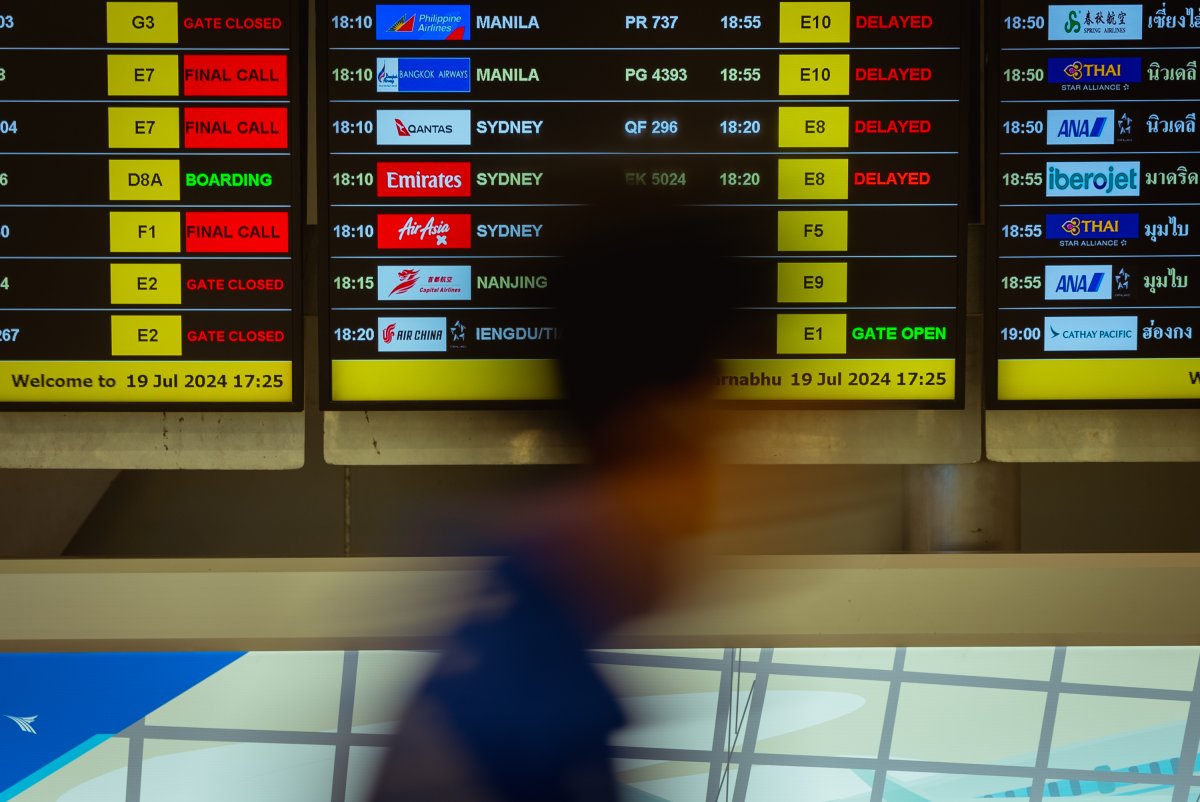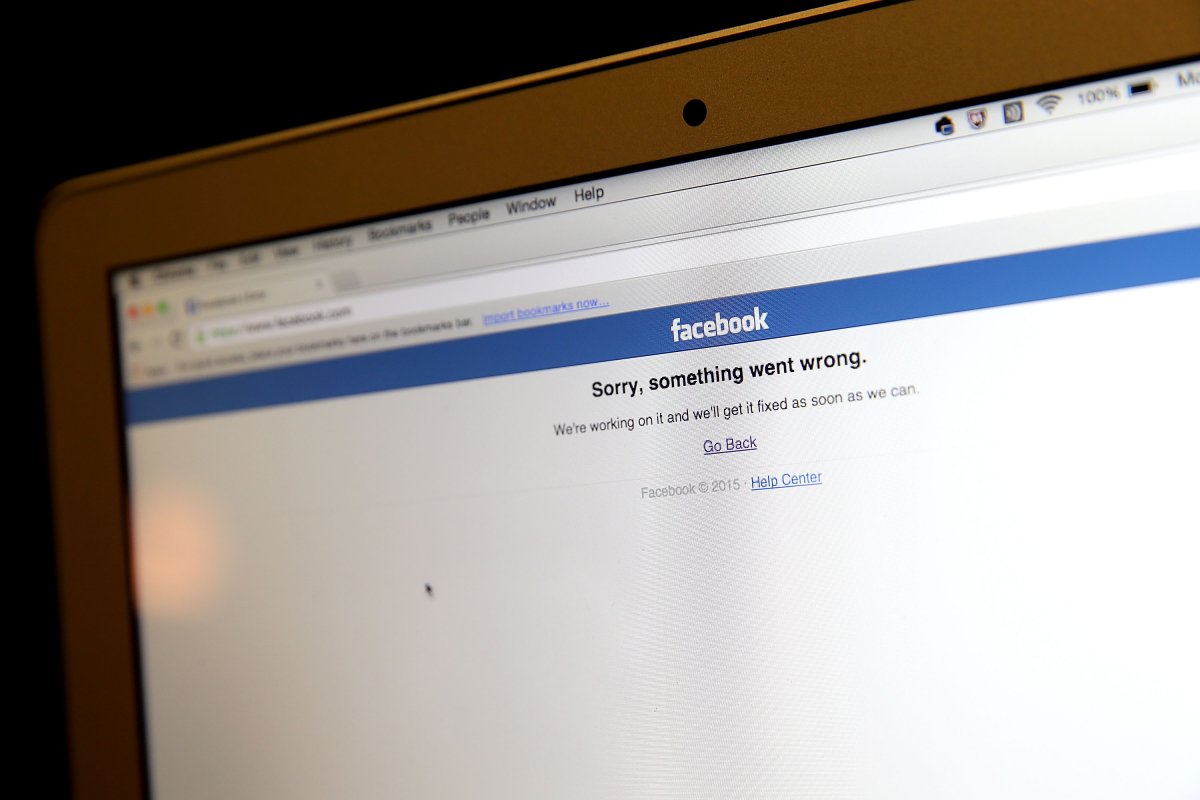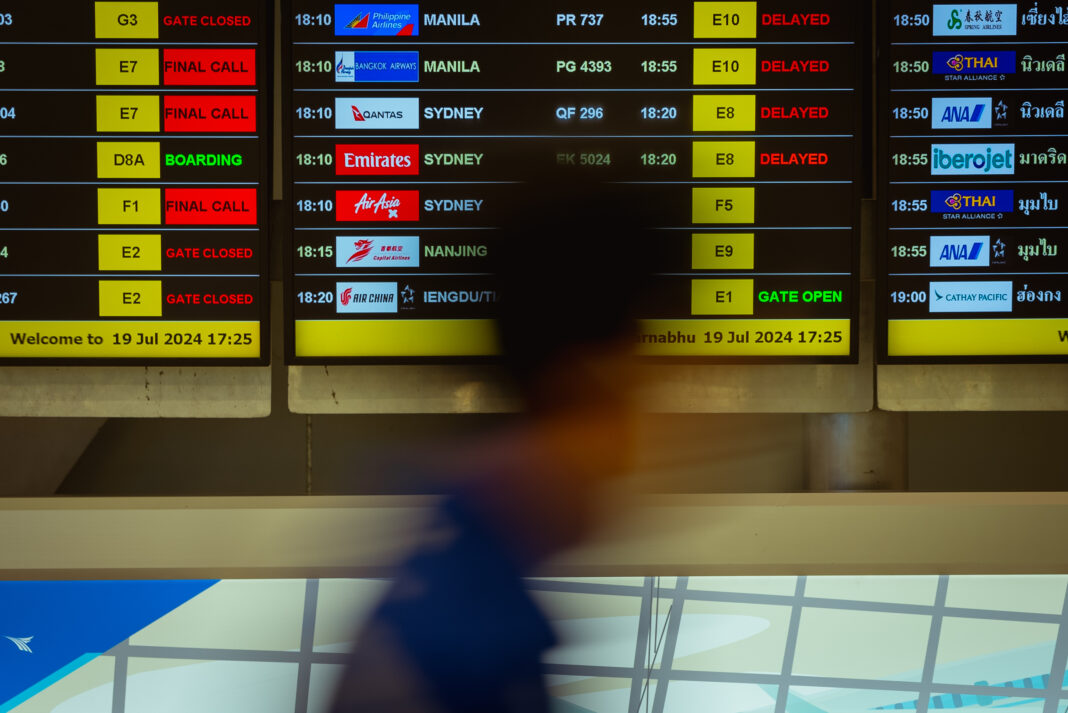A massive IT outage linked to CrowdStrike triggered global chaos as institutions and companies across the world suffered disruptions to their operations.
One cybersecurity expert told Newsweek that this outage seems to be larger than what has come before and may be challenging to mitigate.
The issue could go on for “quite a while,” said Steven Murdoch, professor of security engineering and head of the Information Security Research Group at University College London.
“This does seem to be particularly big,” he added.
Friday’s outage is the latest in a string of high-profile outages in recent years, an issue that is likely to become only more prevalent in an increasingly interconnected society.

Mailee Osten-Tan/Getty Images
Dyn – 2016
The 2016 Dyn cyberattack was one of the most significant distributed denial-of-service (DDoS) attacks in internet history.
On October 21, 2016, Dyn, a major Domain Name System (DNS) provider, faced three consecutive DDoS attacks that rendered numerous high-profile websites inaccessible across Europe and North America.
The attack exploited a botnet primarily made up of compromised Internet of Things (IoT) devices, such as cameras and DVRs, which overwhelmed Dyn’s servers with a staggering volume of traffic.
The Mirai malware orchestrated this botnet attack, leveraging its ability to infect and control IoT devices.
This allowed the attackers to mobilize a vast network of compromised devices to target Dyn’s infrastructure. Notable affected services included Twitter, Netflix, Reddit, and CNN, leading to widespread disruptions for users.
British Airways – 2017
In May 2017, British Airways experienced a significant IT failure that disrupted the travel plans of tens of thousands of passengers. The crash, which occurred over a bank holiday weekend, led to the cancellation of approximately 800 flights from Heathrow and Gatwick airports at the time, stranding passengers and causing extensive delays.
The incident was attributed to a power supply issue at one of British Airways’ data centers.
However, further investigations revealed that the outage might have been triggered by human error. A maintenance contractor reportedly switched off the uninterruptible power supply (UPS), which is designed to provide backup power in case of main power loss, causing an uncontrolled reboot of the system.
The chaos was compounded by the fact that British Airways’ IT infrastructure had already experienced several major crashes within the preceding year.
Facebook – 2021
On October 4, 2021, Facebook and its associated services—Instagram, WhatsApp, Messenger, and Oculus—experienced a significant global outage that lasted for over six hours. The disruption began at around 03:39 p.m. UTC and rendered those platforms inaccessible to billions of users worldwide.

Justin Sullivan/Getty Images
The root cause of the outage was identified as a faulty configuration change during routine maintenance, which led to the disconnection of Facebook’s data centers from the internet. This error affected the backbone routers that coordinate network traffic between data centers, effectively making Facebook’s Domain Name System (DNS) servers unreachable.
DNS is crucial as it translates domain names into IP addresses, enabling users to access websites. With the DNS servers down, Facebook’s entire network became inaccessible.
Fastly – 2021
On June 8, 2021, a major internet outage caused by the content delivery network (CDN) Fastly affected numerous websites worldwide. The outage began around 9:50 a.m. UTC due to a software bug triggered by a configuration change from one of Fastly’s customers.
This issue caused approximately 85 percent of Fastly’s network to return errors, leading to widespread disruptions across various platforms, including major sites like Amazon, Reddit, and the New York Times.
Do you have a story we should be covering? Do you have any questions about CrowdStrike? Contact LiveNews@newsweek.com
Uncommon Knowledge
Newsweek is committed to challenging conventional wisdom and finding connections in the search for common ground.
Newsweek is committed to challenging conventional wisdom and finding connections in the search for common ground.







